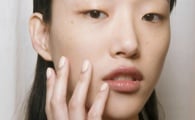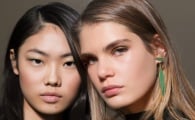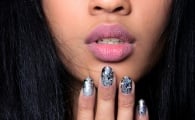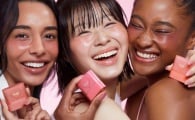Makeup
Here's Why the EU Ecolabel Should Be Your New Beauty StandardCompliance and consciousness in action |
EU's Bold Move in Cosmetic Regulations The EU introduces sweeping amendments to its cosmetics regulation. By encouraging safer, more transparent cosmetic products, and a fond fare to potentially dangerous ingredients.
In with the new: It prioritizes consumer safety by imposing restrictions on substances like retinol, alpha-arbutin, and arbutin, known for their potential endocrine-disrupting properties. Additionally, the ban on UV filter 4-methylbenzylidene camphor takes effect from May 1, 2025, marking a significant step towards protecting consumers from harmful UV exposure.
Out with the old: Products containing retinol, retinyl acetate, and retinyl palmitate will be restricted to 0.05% Retinol Equivalent (RE) in body lotion and 0.3 RE in other leave-on and rinse-off products. Furthermore, the use of substances like genistein, daidzein, kojic acid, alpha-arbutin, and arbutin will be subject to specific restrictions to ensure consumer safety.
But that's not all: The updated list of permitted preservatives in cosmetic products includes new restrictions on triclocarban and triclosan, limiting their use to 0.2% and 0.3%, respectively, in various cosmetic products.
This shift demands more responsible and transparent practices, including scrutinizing product claims and meeting new labeling requirements.
Image via Tanja Ivanova/Getty
SEE NEXT PAGE: Merit
In with the new: It prioritizes consumer safety by imposing restrictions on substances like retinol, alpha-arbutin, and arbutin, known for their potential endocrine-disrupting properties. Additionally, the ban on UV filter 4-methylbenzylidene camphor takes effect from May 1, 2025, marking a significant step towards protecting consumers from harmful UV exposure.
Out with the old: Products containing retinol, retinyl acetate, and retinyl palmitate will be restricted to 0.05% Retinol Equivalent (RE) in body lotion and 0.3 RE in other leave-on and rinse-off products. Furthermore, the use of substances like genistein, daidzein, kojic acid, alpha-arbutin, and arbutin will be subject to specific restrictions to ensure consumer safety.
But that's not all: The updated list of permitted preservatives in cosmetic products includes new restrictions on triclocarban and triclosan, limiting their use to 0.2% and 0.3%, respectively, in various cosmetic products.
This shift demands more responsible and transparent practices, including scrutinizing product claims and meeting new labeling requirements.
Image via Tanja Ivanova/Getty
SEE NEXT PAGE: Merit







































